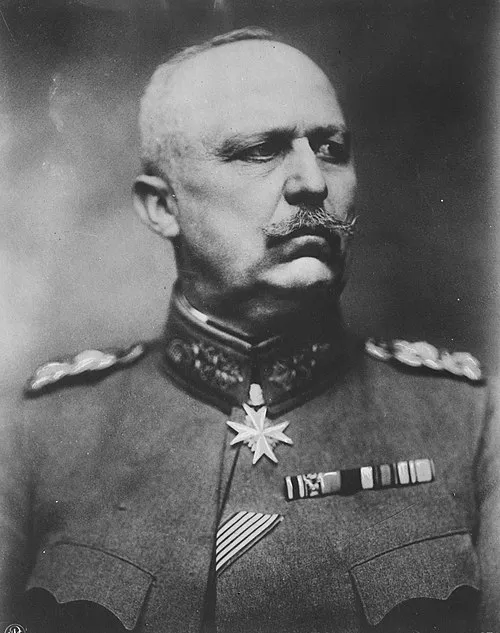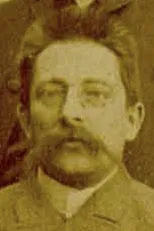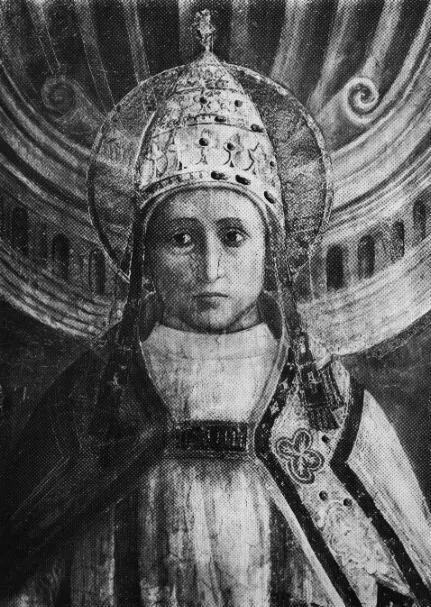
Birth Year: 1865
Death Year: 1937
Nationality: German
Profession: General
Notable Role: German military leader during World War I
1937 – Erich Ludendorff, German general (b. 1865)
As the sun dipped below the horizon on December 20, 1937, the world bid farewell to a figure whose military strategies and controversial decisions had shaped the course of history. Erich Ludendorff, born in 1865, was not merely a general; he was a force of nature an enigmatic personality whose actions on and off the battlefield reverberated long after his death.
Raised in an era when Prussia was rising as a military powerhouse, Ludendorff's childhood was steeped in tales of valor and conquest. He entered military service at an early age and quickly ascended through the ranks. Perhaps it was his innate ambition that fueled his meteoric rise; by World War I, he had already established himself as one of Germany’s foremost military strategists.
In 1914, as Europe descended into chaos with the outbreak of World War I, Ludendorff found himself at a crossroads. He played an instrumental role in orchestrating Germany's initial successes on the Eastern Front. However, despite these victories most notably at Tannenberg his true genius came to light during the war's latter stages when he served as quartermaster general. This position granted him unprecedented control over logistics and operations across various fronts.
The year 1916 marked a pivotal moment in Ludendorff’s career; amid growing discontent among German forces and civilians alike due to mounting casualties and dwindling resources, he executed what would later be known as “The Hindenburg Program.” His approach was ruthless yet effective: streamline resources towards specific fronts while prioritizing decisive battles that could turn tides quickly. The audacity of this strategy earned him accolades but also left many questioning its ethics as soldiers were often sent into combat with little regard for their welfare.
Ironically, for all his strategic prowess during battles like Verdun and Somme where tactical innovations changed warfare forever such as infiltration tactics that emphasized speed over brute strength it wasn't just victory that characterized Ludendorff’s legacy but also his brazen arrogance. Historians recount that after securing temporary advantages for Germany during critical campaigns, he began advocating for peace negotiations under terms favorable only to Germany while disregarding Allied perspectives.
The aftermath of WWI saw Germany plunged into turmoil a climate rife with resentment toward those who had led them into such dire straits. Despite being heralded as a hero by some within military circles who viewed him as Germany's savior from impending doom, there were countless others who held him accountable for their suffering. Who knows how differently history might have unfolded had Ludendorff recognized this sentiment? Instead of retreating gracefully from public life following defeat and arguably accepting some responsibility he chose instead to embrace nationalism fervently.
In 1920 a year marred by political instability Ludendorff became embroiled in what is now referred to as "The Kapp Putsch," an attempted coup against Weimar Republic authorities aimed at restoring monarchical power. Despite its failure almost immediately after being initiated , this episode showcased how deeply ingrained militarism remained within German society even after defeat on battlefields abroad!
Despite this turbulent chapter marking significant decline amidst waning public favorability toward former generals like himself or Hindenburg , Ludendorff reinvented himself politically: entering radical right-wing politics where ideologies echoed those espoused later by Hitler’s National Socialist Party! During these years post-WWI leading up until WWII erupted notably involving anti-Semitic rhetoric plus vague notions about Aryan superiority the name “Ludendorff” became synonymous with extremism...
This period culminated dramatically around 1933 when Adolf Hitler ascended to power a move celebrated among many nationalists eager for retribution against perceived slights inflicted upon them through treaty negotiations following WWI! Interestingly enough though even amidst initial excitement surrounding Nazi movements promoting fascistic governance concepts , there existed notable disillusionment brewing between old-school generals versus new wave leadership styles embraced by emerging ideologues such as Himmler or Goebbels...
Despite maintaining close connections through shared past experiences even attending state functions together they diverged sharply regarding matters pertaining directly towards governance policies moving forward; wherein lies intriguing irony…
Ludendorff died largely overlooked amid societal upheaval unfolding across Europe a shadow cast both literally figuratively upon generations struggling comprehend complexity surrounding wartime legacies once revered but subsequently scrutinized fiercely! Even today people ponder whether admiring figures like him leads society down dark paths paved ignorance blinded ambition?!
His legacy continues hauntingly reflective modernity: recently graffiti depicting simplistic caricatures adorned streets showcasing discontent rooted deep historical grievances still echo unheeded dreams returning stability lost since centuries prior a reminder indeed how challenging navigating balance reconciliation while honoring memories past becomes increasingly vital ensuring cyclical patterns do not repeat endlessly!



